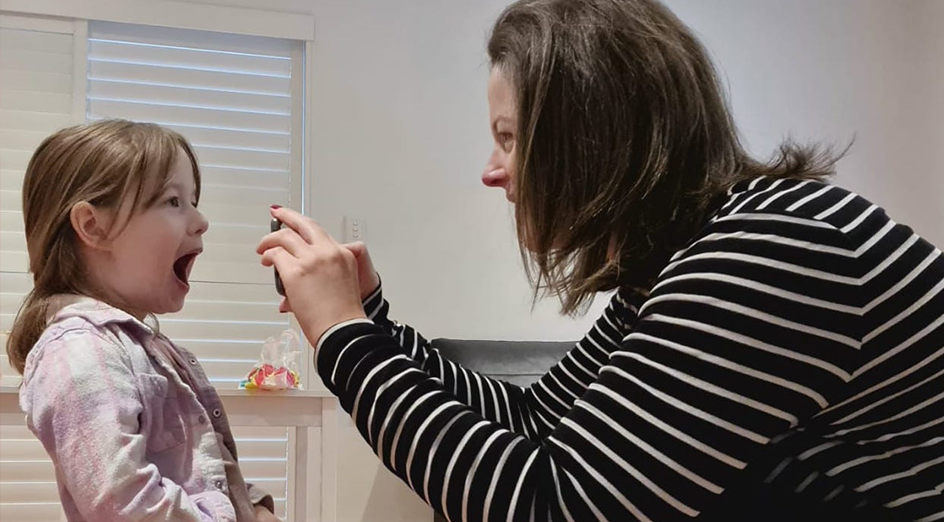A smartphone app that enables remote screening of children's teeth by dental professionals has passed a feasibility study by researchers at The University of Western Australia.
"It has the potential to prioritise dental needs, mainly where dental care access is limited."
Dr Somayyeh Azimi
Created as a response to Covid-19 restrictions on healthcare delivery, the CSIRO-designed app has ongoing potential for use in remote and lower socioeconomic areas.
It also has the potential to reduce waiting times for dental clinics and would suit families wanting less invasive dental screening for their children.
The collaborative study was led by UWA researchers Dr Somayyeh Azimi, Dr Jilen Patel and Dr Mohamed Estai in conjunction with Telethon Kids Institute and Joondalup Health Campus.
The 42 families who participated in the research were part of WA's ORIGINS Project, which is following the health of 10,000 families across a decade – the largest project of its kind.
 Image: Parents are asked to take high-quality photos of their child's mouth.
Image: Parents are asked to take high-quality photos of their child's mouth.
Dr Azimi, from UWA's School of Human Sciences, said parents were asked to take good-quality photos of their children's mouths, which were uploaded to the app and transferred to dental professionals via a secure server.
"This method enabled high-accuracy screening of healthy children without tooth decay and those with evidence of cavities," she said.
"It has the potential to prioritise dental needs, mainly where dental care access is limited, and to reduce waiting times for consultation and travel times to dental clinics.
"It may also lead to better determining the urgency of the need for treatment and the nature of treatment required, as well as potentially reducing the complications of untreated tooth decay, such as dental infection."
Dr Azimi said the next phase of the research would look at incorporating artificial intelligence technology to further accelerate examination and referral.
The study was published in the International Journal of Paediatric Dentistry and funded by the WA Department of Health through a Covid-19 FHRI Focus Grant.






